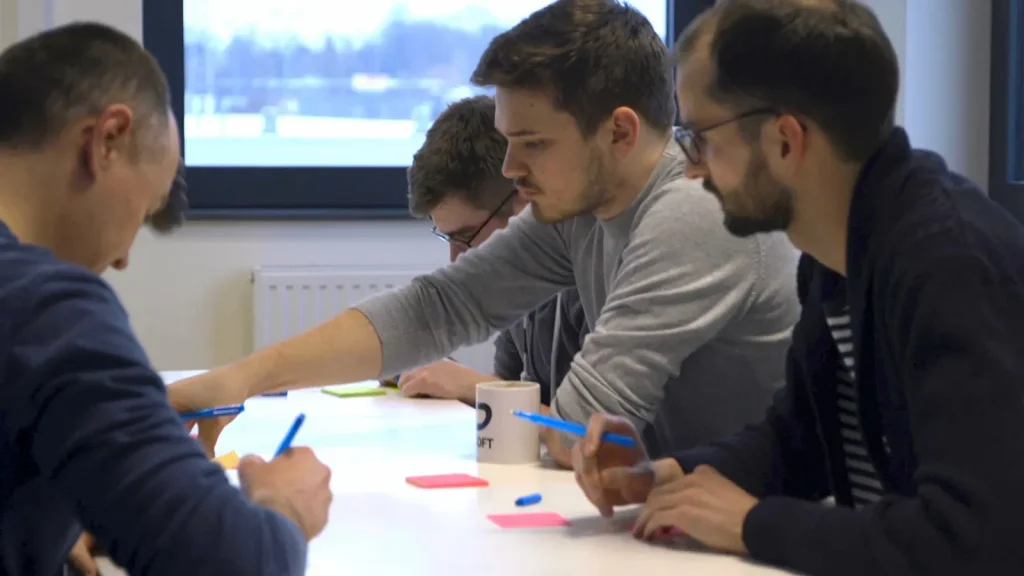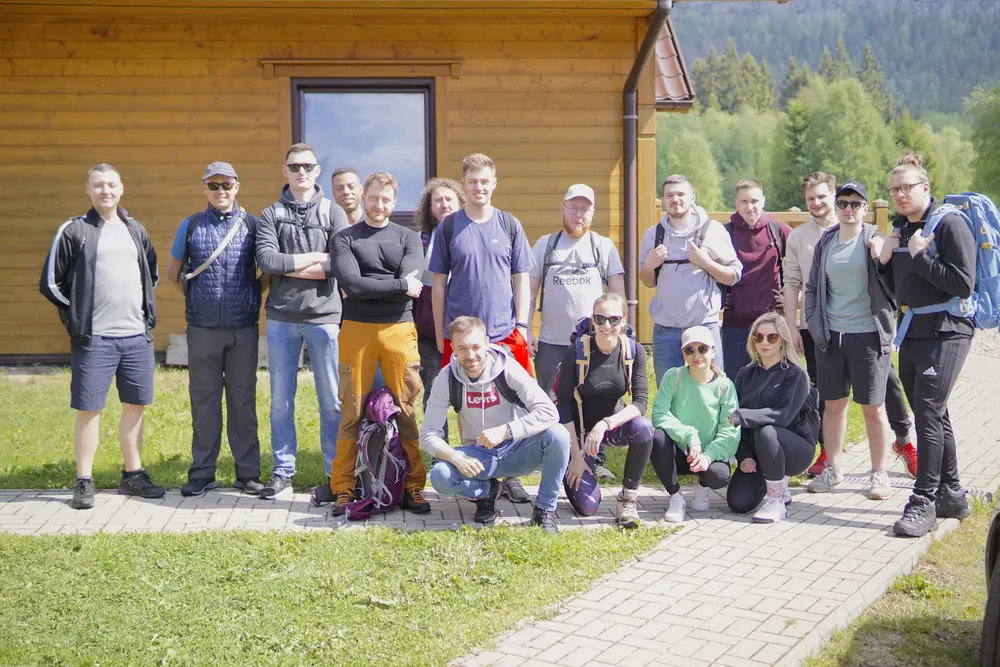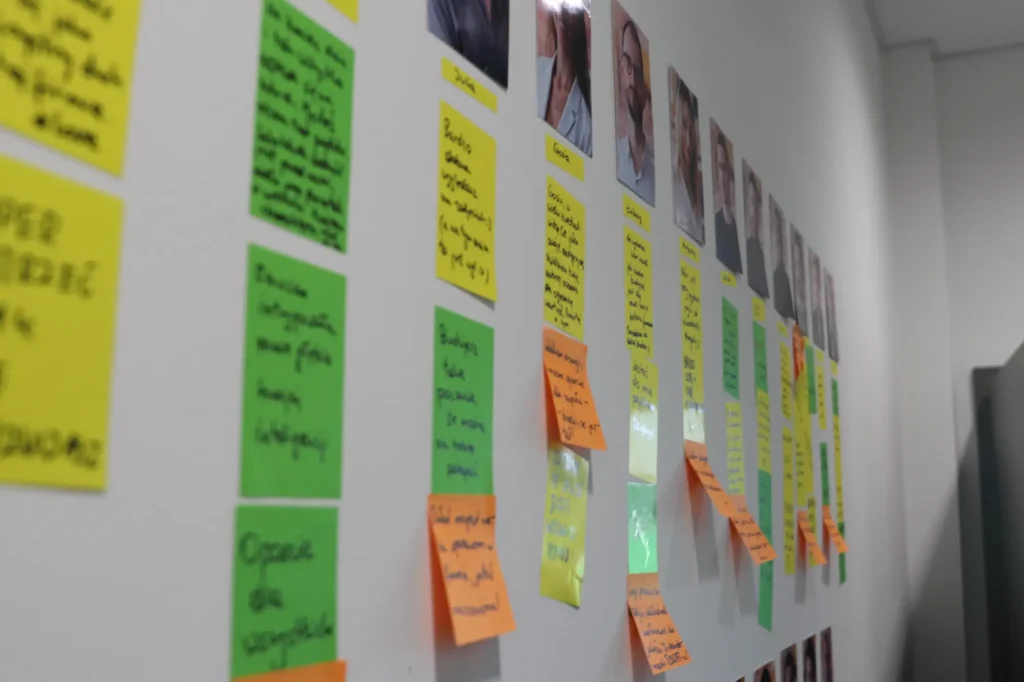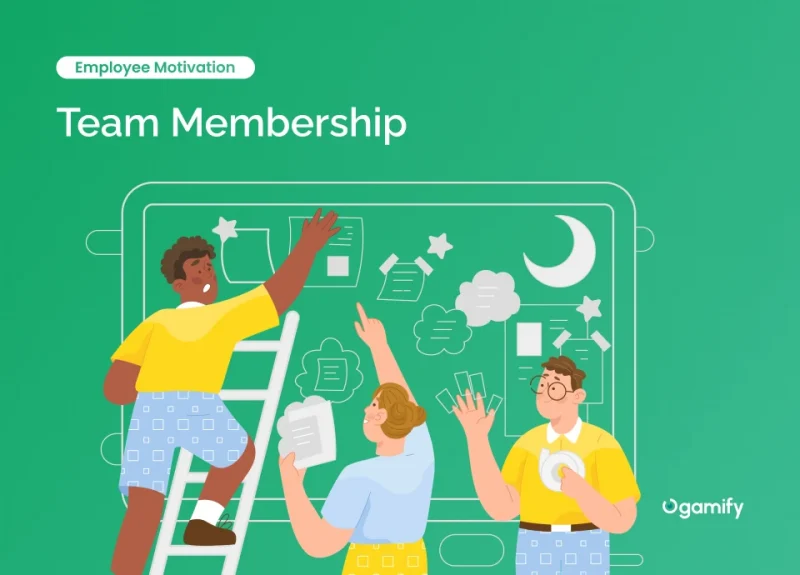Creating a sense of belonging is crucial for fostering positive relationships and building strong communities. But how can we make people feel like they truly belong?
There are a couple of factors to that. First of all, they need to feel that their input is heard and valued. Second of all, they need to feel that they are going somewhere with the group, and that their input as to what that place should be is heard and valued.
The importance of team cohesion and sense of belonging
Team cohesion and sense of belonging are crucial components of a successful and thriving workplace. When team members feel connected to each other and to the organization, there is a higher likelihood that they will be motivated, engaged, and committed to their work.
A strong sense of belonging also promotes a positive and supportive work environment, where individuals feel comfortable sharing ideas, collaborating on projects, and offering feedback. This, in turn, can lead to better communication and productivity within the team, as well as higher levels of job satisfaction and overall well-being.
Furthermore, when team members feel like they belong, they are more likely to stay with the organization long-term and contribute to its success. On the other hand, a lack of cohesion and belonging can lead to high turnover rates, poor morale, and decreased productivity.
How to create a sense of belonging among your team members?
Provide them with space to talk and share their feelings and concerns

You can realize this with regular group discussions on the most important strategic topics, and set those meetings up with one sacred rule – one person speaks at a time. It is as simple as that.
That being said, teaching people to listen to each other is difficult, and making the work environment a safe space for difficult conversation can be considered a big challenge in itself.
At the end of it, it all comes down to leadership. If the leadership team listens, respects, and promotes uninterrupted listening, then people are more likely to do the same to each other.
At the end of the day, as mentioned before, it all comes down to personal leadership and inspiration. Make yourself into an extraordinary person, and the rest will follow.
Case study – Regular Group Meetings
Here at TDSOFT we conduct regular group meetings on the most controversial / important topics, where we sit in a circle (it is very important, you want to make people feel equal), and let people express their doubts and concerns about different issues that need addressing. We listen to them, apply their suggestions if we can or explain the reasons for it if we can’t. But at the end of the day every single contribution shapes our company, and people feel that the company they work in is a direct result of their own contribution, of their own doing. And nothing in the world can replace that.

Give them tools to build together that which is shared
Nothing makes people feel like they belong more than the joint effort to build something that will be shared and used by all. Nothing makes a team feel more integrated than a shared effort directed as something for all to use and enjoy.
Examples of this can be the joint effort to arrange the office, define company values, or organize a company trip.
The clue though is to give people space and tools to do so. You can expect them to do it by themselves, but unless you remove some of the organizational obstacles, and provide tools for them to use, there is a very big chance that nothing of this sort will be done really. That nothing additional / organical will be done really.

Case study– The Perfect Work Environment Committee
At TDSOFT we created a separate internal entity with its own budget called ‘The Perfect Work Environment Committee’ (Komitet Doskonałego Miejsca Pracy or KDMP in polish). The meetings are open, and each week those who want can come and present their ideas, or say what it is they feel needs changing.
The initiative works better than expected and the work environment we have created is regularly mentioned by our team members as one of the biggest perks of our company (and it has not always been like that!)
Make them feel seen, celebrate that which is worthy of celebration
Being seen can be identified as one of the core needs that people have. At the end of the day it all comes down to being valued and important in the eyes of the people that you surround yourself with (ideally – in the eyes of the tribe that you belong to).
How many talented and ambitious people changed their jobs for the sole reason of not being appreciated enough? How much money did it cost to find a replacement for them? One can not stress enough how important this aspect of company culture truly is. Making people feel seen. Making people feel valued. Making people feel important and respected.
One of the simplest and most effective ways to make people feel seen is implementing into the company culture something that can be called a ‘praise culture’. You want to make it a standard, part of the system, part of the process, for people to have tools and opportunities to publicly embrace and talk about the performance and achievements of other team members.

You want them to regularly share what they have seen in their coworkers that was good and should be promoted and done by others. You want to set a golden standard of conduct, a golden standard of what is good and wanted, and there is no better way to do so than by removing obstacles and creating opportunities for public praise and recognition of that which is beneficial and celebration worthy.
And same as before – it all starts with the leadership team. If the leaders are truly looking for reasons to appreciate others, and publicly talking about that which they have seen, then it goes down, inspires others, and builds a culture of appreciation.
At the same time one should be wary of a dictatorship of praise – you don’t want to end up being the only person in the company whose praise means anything, and everyone is fishing for it. You want to make it organical, part of the company culture, in a way independent of yourself.
How to do it? One word – humility. Learn to be equal with others. Make yourself equal with others. Make yourself strong within, strong from your internal values and integrity, not from dominance and control over others. Great leaders are those who are ‘one of us’, not ‘one of them’. They are the ones who sit in a circle, among their people, listening, paying respect, and inspiring others to do the same.
As said before – at the end of the day it all comes down to personal growth and true leadership.

Case study – Monthly Growth Celebration
At TDSOFT we (gamify any growth related activities with an inhouse build app)have developed an app that is gamifying any growth-related activities of our team members. This office game (Ogamify as we call it) has not only enabled us to track and promote activities which are beneficial for both people and our company, but also gave a perfect opportunity to create a monthly celebration ritual, where we publicly talk and embrace those of us who did the most in a given month.
The benefits of such a system are twofold – first of all you as a leader get a perfect tool that lets you talk about that which is good and wanted, and set a ‘benchmark’ for others to follow, and second of all, lets you see, talk and appreciate those who are truly remarkable in your company when it comes to the criteria that you set yourself.
Conclusion
In conclusion, creating a sense of belonging within a team or company is crucial for its success, and it all comes down to personal leadership and inspiration. Making people feel seen, heard, valued, and appreciated is the key to building a strong culture of belonging. Providing a safe space for open communication and joint efforts to build something shared and for all to use can also contribute to creating a sense of belonging. Lastly, it is essential to implement a praise culture and lead by example by being humble and equal with others. At TDSOFT, regular group meetings, committees, and public recognition have been implemented with great success, resulting in a more cohesive team and a better work environment.
FAQ
What are the 5 pillars of belonging?
– Inclusivity
– Connection
– Support
– Collaboration
– Empowerment
How can leaders promote a sense of belonging in a remote or virtual team?
In a remote or virtual setting, leaders can promote a sense of belonging by organizing virtual team-building activities, creating spaces for informal conversations, and encouraging virtual collaboration through shared platforms and tools. Regular video meetings and check-ins can also help foster connection and engagement.
How does a praise culture contribute to creating a sense of belonging?
Implementing a praise culture, where individuals have the opportunity to publicly embrace and talk about the achievements and performance of their teammates, helps create a sense of belonging. It allows team members to feel valued, seen, and appreciated within the organization. By setting a golden standard of conduct and providing tools for public recognition, a praise culture reinforces positive behaviors and builds a culture of appreciation.
What does sense of belonging mean in the workplace?
Sense of belonging in the workplace refers to an individual’s perception of being valued, accepted, and included as a member of the organization. It goes beyond surface-level interactions and creates an environment where employees feel connected to their colleagues, supported by their leaders, and aligned with the company’s values and goals.


